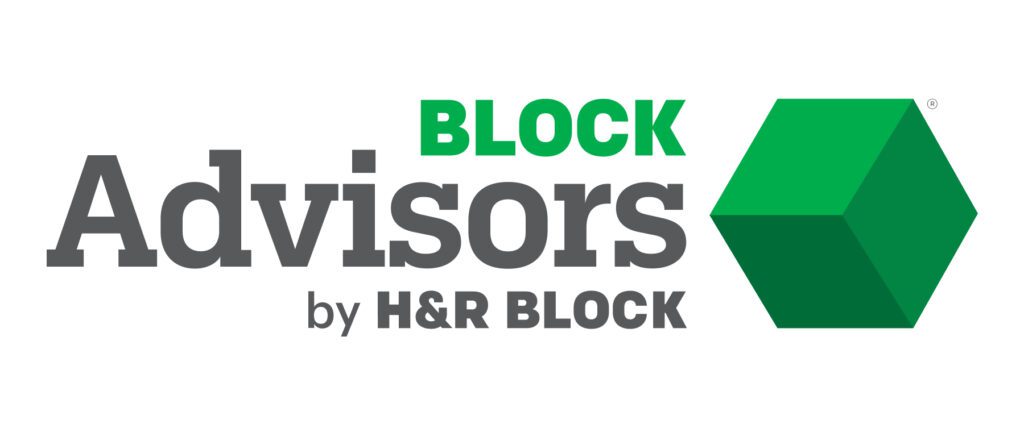How to open a business bank account in 5 steps
7 min read
May 01, 2024 • Block Advisors
Thinking about starting a business? One of the first things to consider is learning how to open a business bank account. A business bank account is an important tool in a business owner’s arsenal. It helps you keep your work and personal finances separate. A business bank account can also help you stay organized when it comes to tracking expenses and cash flow and understanding the overall financial wellness of your venture. Some types of accounts you may consider for your company include a business savings account, business checking account, and merchant account.
If the basics of business bank accounts have you feeling overwhelmed, don’t worry! As with many parts of business ownership, attention to detail is important so you can understand the best path for your business. Keep reading to get important information to help you move forward.

Why open a business bank account?
There are some advantages when you decide to open a business bank account.
1. Separate personal from business
By having a dedicated business account, you maintain a clear distinction between personal and business transactions. This usually makes tracking the inflow and outflow of money easier. It can also prevent a headache at tax time if you have a good understanding of what expenses you want to deduct. Related: View our post on cash flow management.
Moreover, when you have separate bank accounts, your bookkeeper, tax professional, and business advisors can easily view transactions. When you don’t separate your business bank account from your personal one, getting an accurate picture of your finances is more challenging.
2. It may offer legal protection
Separating business transactions from personal transactions is legally advantageous for certain business entities like a corporation or Limited Liability Company (LLC). This separation helps business owners for these types of companies safeguard their personal assets if their business faces debt or certain legal situations. Related: Learn more about Block Advisors’ business formation services.
3. It sets your business up for potential financing
Maintaining a separate business account helps establish the business’s financial history so creditors have a clear picture of your company’s financial standing. For example, if you apply for a line of credit or business loan, funding such as a small business grant, or want to sell your business down the road, having a separate business account can position you for a favorable outcome.
4. It opens avenues of receivables
Business accounts often offer the ability to accept different payment types. These may include forms of payment like online transfers, credit card payments, app transfers, and checks. The flexibility to accept different payment types may attract customers and ensure you don’t lose sales due to payment limitations.
5. It gives you credibility
Finally, a business account is widely considered to be a wise move to ensure good recordkeeping. Not only this can come in handy at many key points in your small business journey from tax time, to seeking loans, to establishing trust with vendors. But it may even provide credibility should the IRS question expenses on an examination or audit.
Bookkeeping stressing you out?
Save time and money with small business bookkeeping services from Block Advisors
When to open a business bank account
A business bank account may be opened at any point for your venture. Many entrepreneurs choose to open a business account when they register their business or during the incorporation process. So, before accepting business payments, consider if you should open a business account first.
How to set up a business account
Step 1: Consider the account type you’ll need
First, think about the type of business account you’ll need. Below is information on three small business bank account options. Each has nuances you’ll want to consider as you decide if one of them is right for your situation:
Business checking accounts
Many people use business checking accounts as the core operating account for their business. With it, you can accept deposits, make payments, and usually access digital tools provided by the banking institution. Business checking accounts are great for everyday use and can even provide ATM access.
Business savings accounts
Business savings accounts are designed to hold long-term business funds. Many owners use them to squirrel away money for quarterly estimated tax payments, save up for new equipment, or build a rainy-day emergency fund. Often, they even pay interest over time.
Merchant accounts
A merchant account is specifically used for processing customer payments, usually from credit or debit cards provided by financial institutions or specialized payment service providers. Business owners usually go through an application and underwriting process to get a merchant account. The account’s host institution wants to understand the business’s financial standing, creditworthiness, and risk factors. If your application is approved, your business will get a Merchant Identification Number to track and process transactions and payment data. Merchant accounts often offer low transaction fees. But be wary of additional fees tacked on by providers that can eat into your bottom line.
Step 2: Gather all required documents and information to open a business bank account
If you’re wondering, “What do I need to open a business bank account?” there are a few important things you’ll want to gather. Remember, it’s not a fixed list of things you’ll need. Some business accounts require different information and documents than others.
- Your business contact information: Legal business name, phone number, email address, and website.
- Your Employer Identification Number (EIN) or Social Security number (if you don’t have an EIN). This should be the same Tax ID number you use on your business tax returns.
- Your business address, which is the address used on tax forms and to license your business. You can set up a P.O. box or alternate address if you do not have a business location or work out of a home office.
- Proof of identification, such as a driver’s license or passport.
You might also be requested to provide:
- Articles of organization / Articles of incorporation / Partnership Agreement (depending on your business entity type)
- Business licenses
Step 3: Compare banks before you open a business bank account
Like any big business move, it’s important to shop around for the right bank for you. Gather all your banking options, then investigate the benefits and drawbacks of each. Reading reviews from other business owners may also help you understand which institution will best fit your business.
Things to consider when comparing banks
Here are some factors to weigh while choosing a banking institution for your business banking account:
- Locations in your area
- Access to ATMs
- Accounting fees or other monthly fees you may incur
- Incidental fees
- Integrations with other tools
- Interest rates / Annual Percentage Rate (APR)
- Minimum balance requirements
- Online features
- Online or wiring transfers
Step 4: Choose your bank, open a business bank account, and make a deposit
Once you’ve zoned in on a preferred bank, dig into the details of each type of account available for businesses. Each banking institution will provide a different offer based on the type of account and other factors that play into your eligibility for a business banking account.
Check paychecks off your to-do list!
Block Advisors payroll services are here to help
Don’t be afraid to ask questions—this is a big investment in time and resources for your small business. You don’t want to have any regrets or run into frustrations after setting up your account. Once you’ve narrowed your bank and account, your banker will walk you through the steps to open the account. You can transfer your business funds to your new account once you’re approved.
Get help with Block Advisors
Block Advisors is here to lighten your load so you can focus on what matters most – growing your business.
Let us help you with your small business tax needs, such as determining when small business taxes are due, navigating complex tax forms, and more. A Block Advisors Small Business Certified Tax Pro in your area is ready to help.
We can also help with other parts of your small business to-do list. Block Advisors has your back on bookkeeping, payroll, business formation, and beneficial ownership reporting. Reach out today to learn more!

This article is for informational purposes only. The content may not constitute the most up-to-date information and should not be construed as legal advice.



